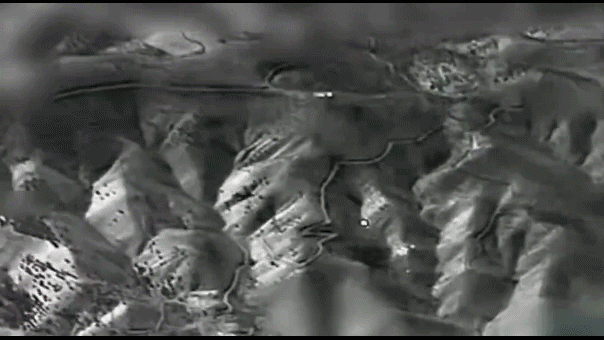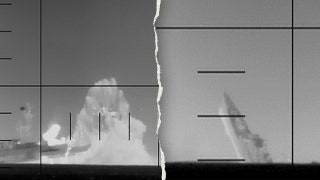Germany celebrates 30 years since the fall of the Berlin Wall
Germany holds a ceremony commemorating the historic event on November 9, 1989; Amy Kellogg reports from the scene.
Amid Brexit and a populist rise from the far right, Germany, seen as Europe’s anchor of stability and neoliberal centrism, is now facing an uncertain political future as Chancellor Angela Merkel’s “heir apparent” declared on Monday that she is quitting.
Annegret Kramp-Karrenbauer told senior Christian Democratic Union members she would step down as the governing party’s leader and not seek the chancellorship in next year’s decision.
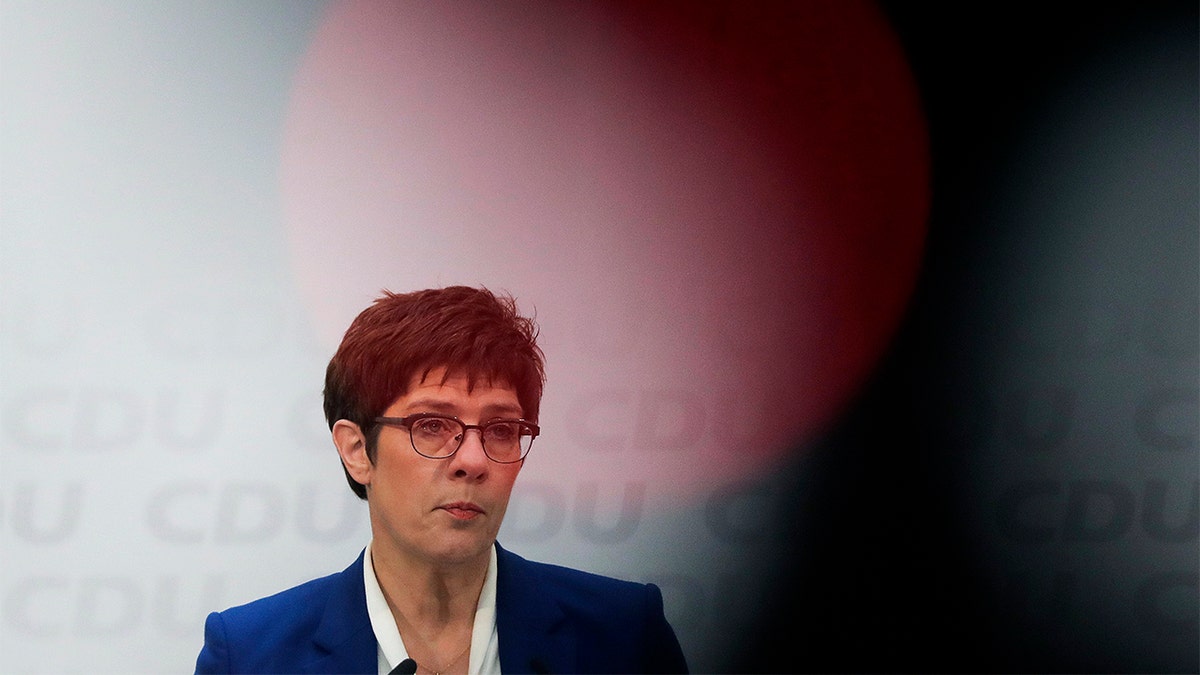
Christian Democratic Union party (CDU) chairwoman and Defense Minister Annegret Kramp-Karrenbauer speaks during a press conference in Berlin, Germany, Monday.(AP Photo/Markus Schreiber)
The surprise decision upended Merkel’s plans to hand Kramp-Karrenbauer the reins of power after more than 15 years as chancellor.
“I took note of this decision with the utmost respect, but I also say that I regret it,” Merkel told reporters, thanking Kramp-Karrenbauer for her work and for agreeing to stay on until a new party leader is chosen.
Kramp-Karrenbauer plans to remain in her role as Germany’s defense minister.
GERMAN ACTIVISTS APOLOGIZE FOR USE OF HOLOCAUST VICTIMS’ REMAINS IN ANTI-NAZI INSTALLATION
The announcement followed days of in-fighting within the party over the election of a governor in the state of Thuringia. Christian Democratic Union legislators there voted with the far-right Alternative for Germany party (AfD) last week to oust a left-wing incumbent.
The CDU representatives not only defied Kramp-Karrenbauer’s advance appeals and undermined her leadership, but broke what is widely regarded as a taboo in post-Holocaust German politics around cooperating with extremist parties.
“The AfD stands against everything we as the CDU represent,” Kramp-Karrenbauer told reporters Monday in Berlin.
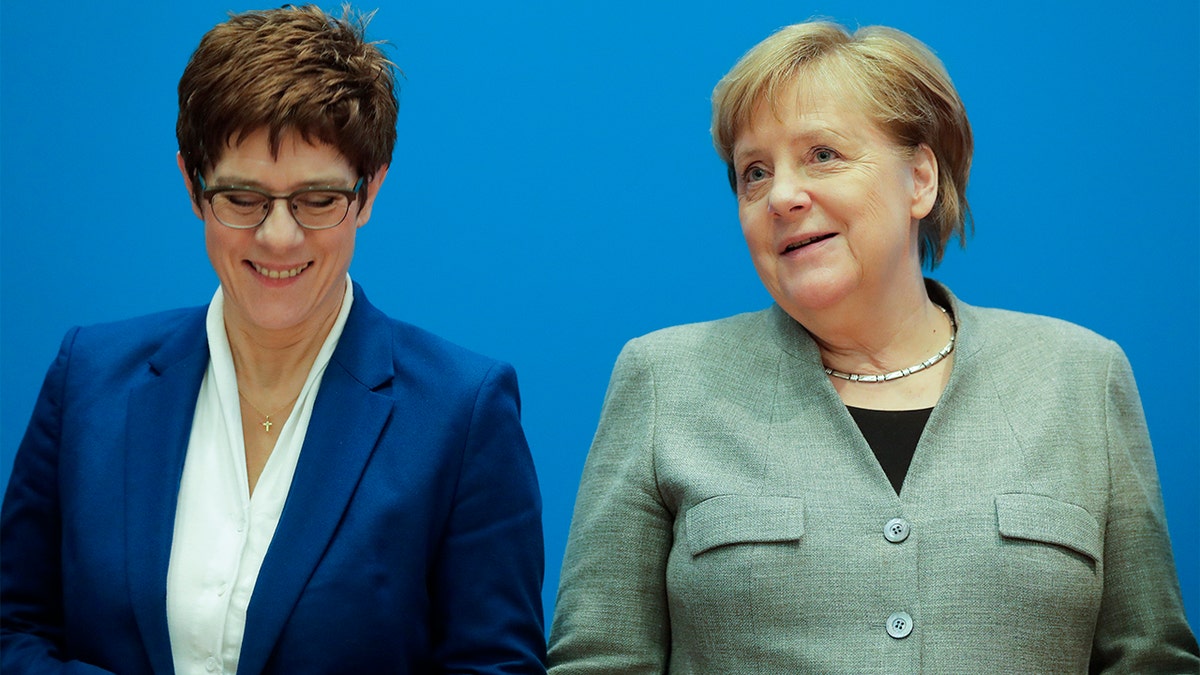
German Chancellor Angela Merkel, right, and CDU party chairwoman and Defense Minister Annegret Kramp-Karrenbauer, left, attend a party's board meeting at the headquarters in Berlin, Germany, Monday. (AP Photo/Markus Schreiber)
Manfred Weber, a German member of the European Union parliament who leads a center-right bloc in the EU legislature, told daily newspaper Welt that the situation in Thuringia reflected a Europe that “is in a phase of growing instability; politics is becoming more serious.”
“In general, it is a sign of growing instability among the parties of the middle all across Europe. The parties of the middle must draw their red line to those with radical right tendencies,” Weber said. “This approach from Kramp-Karrenbauer was and is correct.”
Merkel has said she will not run for a fifth term in Germany’s next general election, which is now scheduled for fall 2021. But any shift to the right by the Christian Democrats could trigger a breakup of Merkel’s federal coalition with the center-left Social Democrats and increase the chances of an early national election.
“If it’s up to me, it won’t have any effect on the stability of the grand coalition,” Kramp-Karrenbauer said after announcing her planned withdrawal.
The Alternative for Germany welcomed Kramp-Karrenbauer’s resignation, as did Germany’s former domestic intelligence head, Hans-Georg Maassen, a vocal figure on the right of Merkel’s party since his ouster as Germany’s spy chief in 2018.
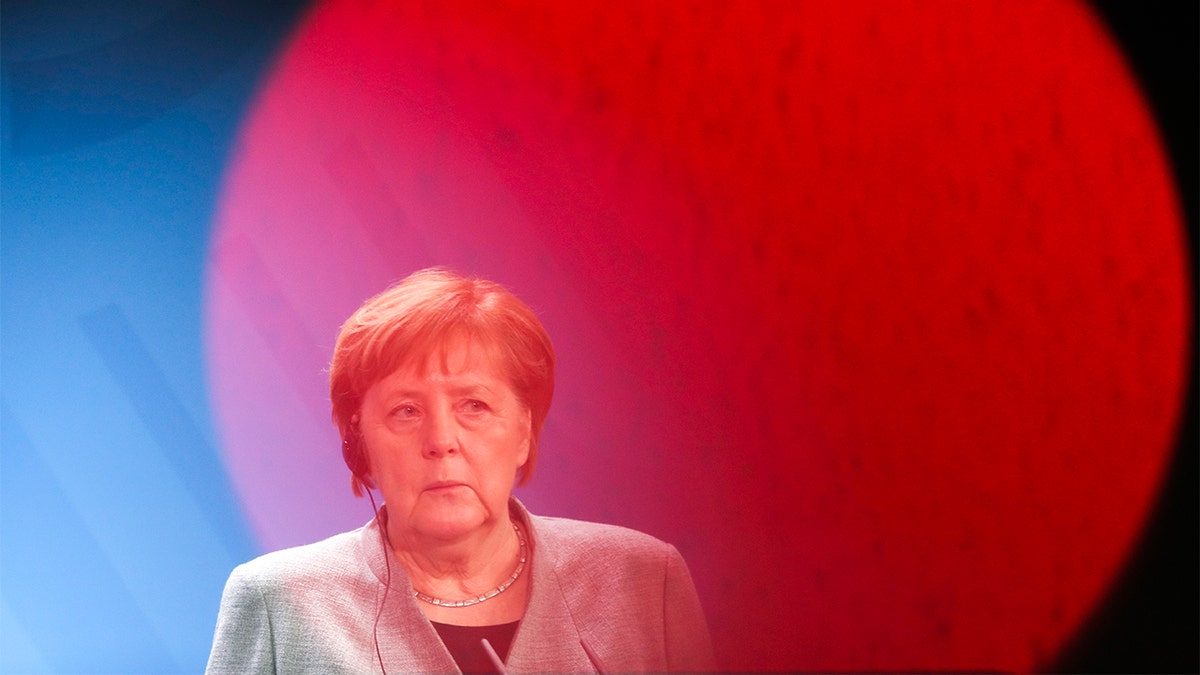
German Chancellor Angela Merkel listens to Hungary's Prime Minister Victor Orban during a joint statement prior to a meeting at the chancellery in Berlin, Germany, Monday. (AP Photo/Markus Schreiber)
Alternative for Germany has established itself as a powerful far-right force since its founding in 2013, taking double-digit shares of the vote in regional and national elections. Its success has complicated Germany’s political tradition of governing with multi-party coalitions, as most of its rivals have ruled out working with Alternative for Germany.
The far-right party has successfully wielded populist tactics, emphasizing national self-interest and immigration controls while tolerating anti-Semitism and historical revisionism among its members.
CLICK HERE TO GET THE FOX NEWS APP
Alternative for Germany’s leader in the state of Thuringia, Bjoern Hoecke, has in the past marched alongside far-right extremists and called for a “180-turn” in the way the country commemorates its Nazi past.
Recent polls had Merkel’s conservative block at about 28 percent support nationally, followed by the left-leaning Greens at about 22 percent. The Social Democrats are struggling with only about 14 percent support, about the same as the far-right Alternative for Germany.
The Associated Press contributed to this report.

